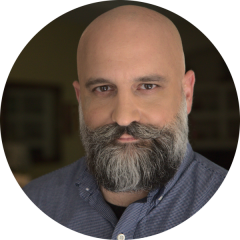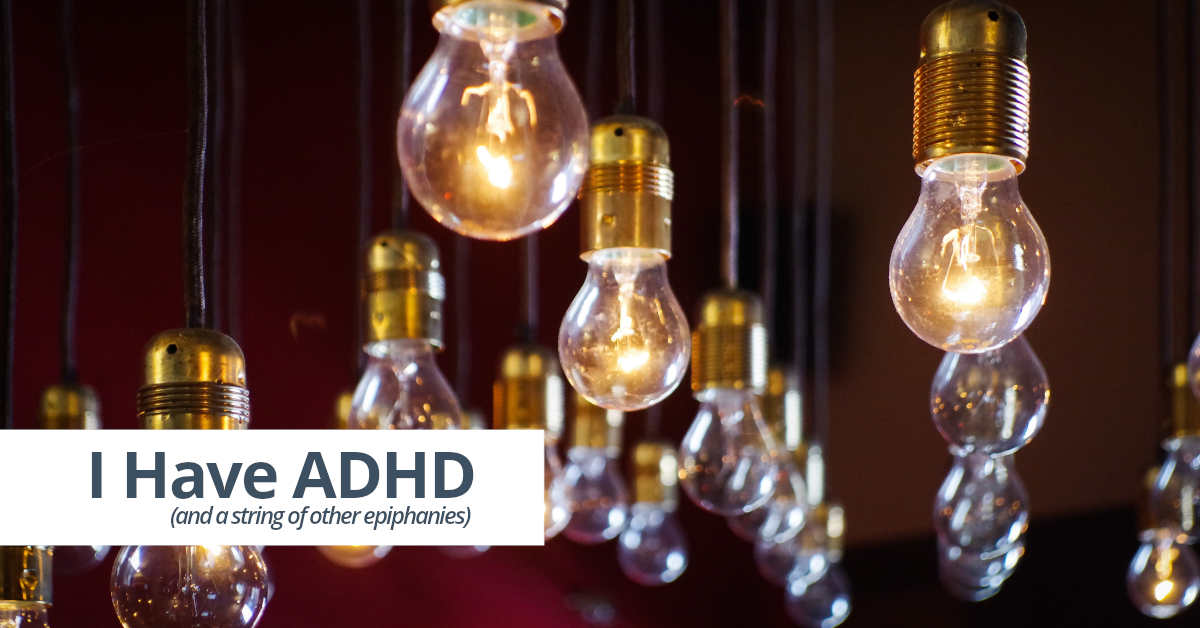There. I said it.
…and not as a punchline or as a wisecrack, which I’m embarrassed to admit I’ve done before. But that was before I believed it was real.
Boy did I have a lot to learn.
How It Happened
It started nearly two years ago for me.
Not the ADHD—I’ve had that my whole life. Or rather, the symptoms appeared in childhood, which is how it happens, apparently, which was one of the many epiphanies I was to have about ADHD.
And it was really that which began back then—a series of epiphanies that resulted in me getting a formal diagnosis: Attention Deficit/Hyperactivity Disorder, Combined Type (ADHD).
And the epiphanies just keep on coming.
As with many ADHDers who are first diagnosed as adults, I learned about it because of a child. My daughter was struggling, and my wife and I took her to see a highly respected psychologist in our area—someone we chose because of her experience with exceptionally gifted children.
And after putting our daughter through a litany of tests, the psychologist sat my wife and me down and confirmed what we suspected: we have a very gifted child.
…who has ADHD.
Pushing Back
So there I am, sitting with this Doctor of Psychology (Psy.D.), explaining why I don’t believe it.
I was convinced ADHD was the creation of pharmaceutical companies who want to sell drugs to kids. I also viewed it as the excuse of many a parent who avoided disciplining their children. It was a convenience for educators who couldn’t handle kids that didn’t fit in. (“Just give them a pill and they’ll be normal!”)
And that’s when my real education about ADHD began—sitting with the very patient psychologist who was gracious enough to not be offended by my uneducated reaction. She graciously walked me through her own history with the diagnosis. It turns out that early in her career she hadn’t believed it either. But after dealing with a lot of struggling kids and exasperated parents, she came to understand it very differently.
At the end of the day, ADHD appears to be a neurobiological condition. Sure, there are aspects of it that are not well understood, but it evidently ultimately boils down to chemistry in the brain.
And for people who have this trait, life is different.
A Different Life
And that’s why I have decided to come forward about having ADHD. I had no idea how different my life was compared to the lives of people who are more “neurotypical.” I had very little awareness about how much I was struggling—and had been my whole life.
Thus begins this new blog series. I’m starting a public journal of sorts, exploring what I’ve learned and am learning about ADHD—how it affects those of us who have it, how it affects our loved ones, friends, and co-workers, and how we all learn to live with it.
It’s different. But I’m convinced doesn’t have to be a “deficit” or a “disorder” (and certainly not both at the same time!).
I’m looking forward to sharing with you—the ups, the downs (like the ways that awareness can lead to crippling self-doubt), and anything I learn that might be helpful to you as an ADHDer or as someone who cares about one.


3 Comments